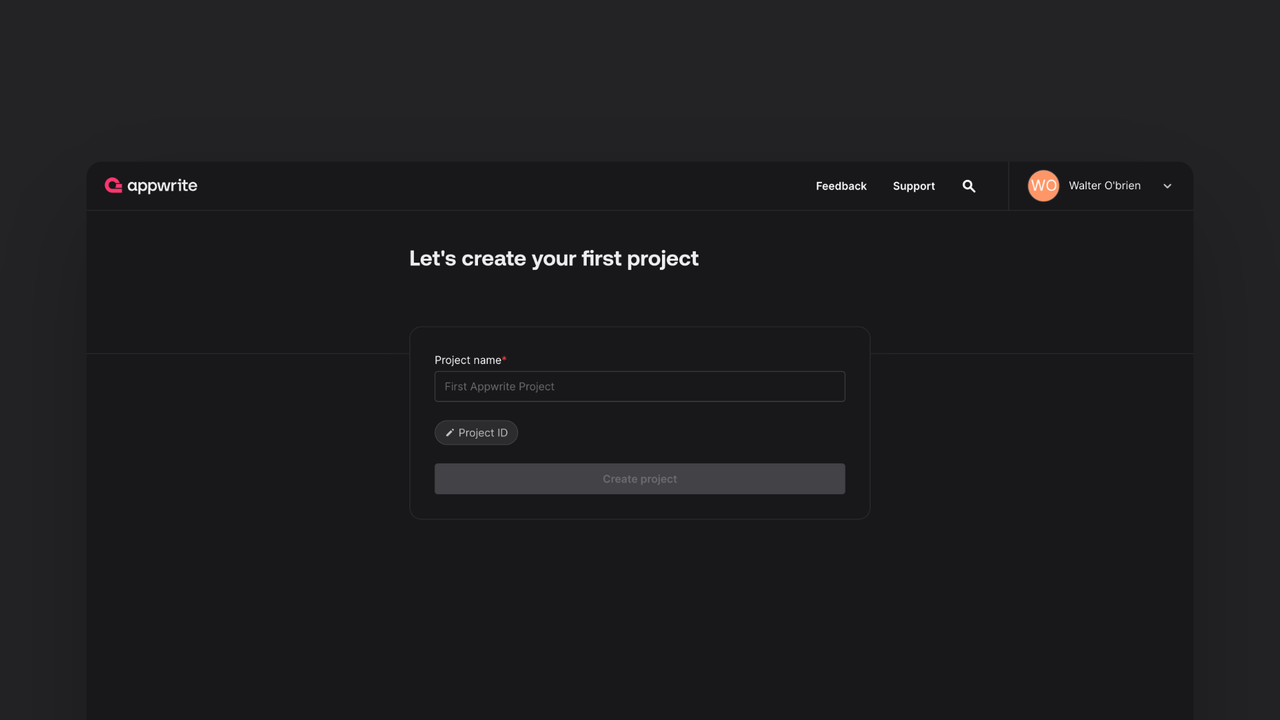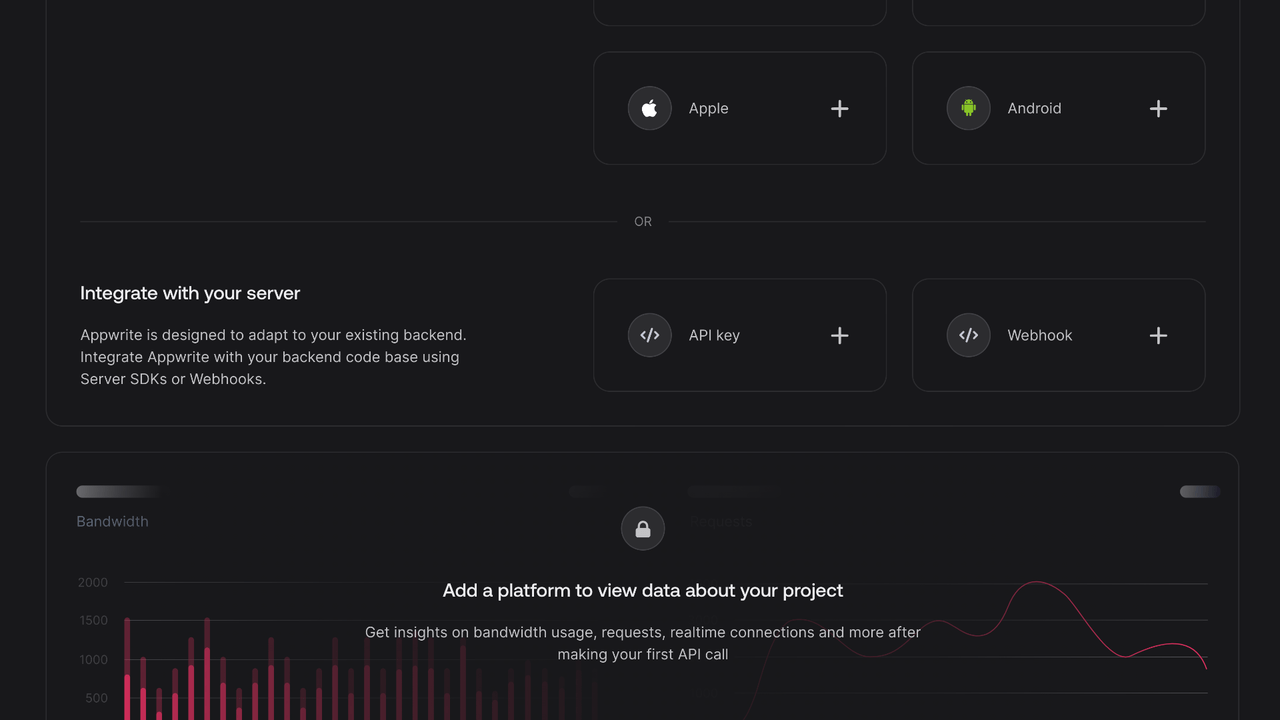Before you can use Appwrite, you need to create the Appwrite Client and set the project ID and endpoint. The client is then used to create services like Databases and Account, so they all point to the same Appwrite project.
Create a function to build services you need in a file like src/server/appwrite.js and exporting the instances.
As part of the function, set the current user's session if they are logged in. This is done by accessing the session cookie from the request and calling the setSession(session) with the cookie value.
Appwrite client security
Notice that createAdminClient and createSessionClient returns a new instance of the Appwrite Client. When using Appwrite in server-integrations, it's important to never share a Client instance between two requests. Doing so could create security vulnerabilities.
// src/server/appwrite.js
import { Client, Account } from "node-appwrite";
// The name of your cookie that will store the session
export const SESSION_COOKIE = "my-custom-session";
// Admin client, used to create new accounts
export function createAdminClient() {
const client = new Client()
.setEndpoint(import.meta.env.PUBLIC_APPWRITE_ENDPOINT)
.setProject(import.meta.env.PUBLIC_APPWRITE_PROJECT)
.setKey(import.meta.env.APPWRITE_KEY); // Set the API key here!
// Return the services you need
return {
get account() {
return new Account(client);
},
};
}
// Session client, used to make requests on behalf of the logged in user
export function createSessionClient(request) {
const client = new Client()
.setEndpoint(import.meta.env.PUBLIC_APPWRITE_ENDPOINT)
.setProject(import.meta.env.PUBLIC_APPWRITE_PROJECT);
// Get the session cookie from the request and set the session
const cookies = parseCookies(request.headers.get("cookie") ?? "");
const session = cookies.get(SESSION_COOKIE);
if (!session) {
throw new Error("Session cookie not found");
}
client.setSession(session);
// Return the services you need
return {
get account() {
return new Account(client);
},
};
}
// Helper function to parse cookies
function parseCookies(cookies) {
const map = new Map();
for (const cookie of cookies.split(";")) {
const [name, value] = cookie.split("=");
map.set(name.trim(), value ?? null);
}
return map;
}
Environment variables
import.meta.env.APPWRITE_KEY, import.meta.env.PUBLIC_APPWRITE_ENDPOINT and import.meta.env.PUBLIC_APPWRITE_PROJECT are environment variables that are exported in your project's .env file.
For example, your .env might look something similar to this.
APPWRITE_KEY=<YOUR_API_KEY>
PUBLIC_APPWRITE_ENDPOINT=https://<REGION>.cloud.appwrite.io/v1
PUBLIC_APPWRITE_PROJECT=<PROJECT_ID>
The PUBLIC_APPWRITE_ENDPOINT is the endpoint of your Appwrite project, and the PUBLIC_APPWRITE_PROJECT is the ID of the project you want to use. You can get the values for these variables from the Appwrite console.


The APPWRITE_KEY is an Appwrite API key with the necessary permissions to create new sessions.
For this tutorial you'll need an API key with the following scopes:
| Category | Required scopes | Purpose |
Sessions | sessions.write | Allows API key to create, update, and delete sessions. |

